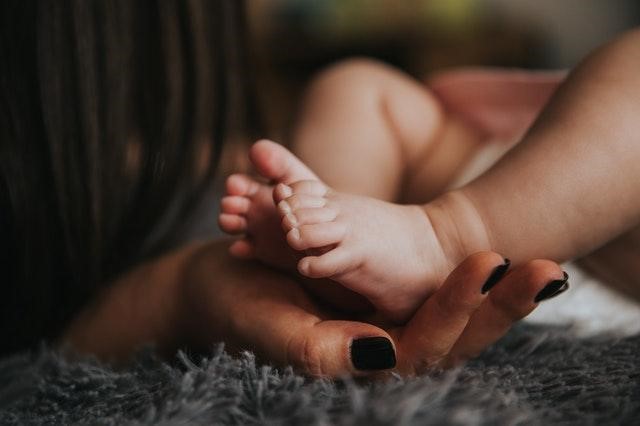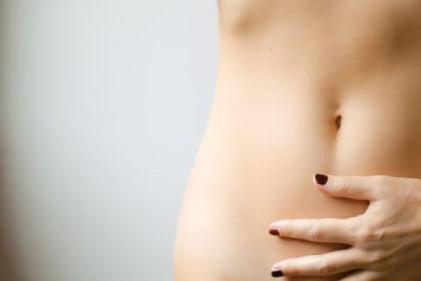When you’re a new mom, you have to make all sorts of decisions for your little one, such as whether you should breastfeed or use formula, what sleeping arrangements to make, whether you should medicate your baby, and so on. It’s normal to become overwhelmed. Now, you’re responsible for another person’s life, so it makes sense that you question every decision you make. New-mom worries swoop in, dominating your thoughts and stealing the joy of being a new mother. What if you just can’t get rid of those anxious feelings? Excessive worrying may be a sign that you’re suffering from postpartum anxiety disorder.
Maybe it’s not just the baby blues
It’s normal for women to start feeling sad or anxious right after giving birth. The baby blues, as it’s commonly referred to, hits within five days of delivering the baby. Nobody knows the exact cause of the baby blues. The only thing we’re certain about is the fact that it’s connected to hormonal changes that occur during pregnancy. No matter how much you’ve been looking forward to childhood or how much you love your child, having a baby is a pretty stressful time. You take on new responsibilities and barely have time for yourself. Needless to say, it’s worth it. When you look at the baby’s face, the love you feel for them will bring you pure happiness and fill your heart with joy.
Getting back on topic, the baby blues can be easily confused with postpartum anxiety disorder, which is a type of postpartum disorder. Anxiety is a natural response to protect your baby. If you continue to experience moodiness, chances are that you don’t have the baby blues because they only last a few weeks. Postpartum anxiety disorder is a serious form of PPD. It does more than keep you up at night. You can develop severe, long-lasting depression. Many women experience this kind of depression without even knowing that they’re sick, having a constant feeling of dread and always being on the edge. If you’re feeling down in the dumps, don’t worry because you’re not the only one. It affects about 10% of new moms.
Symptoms of postpartum anxiety disorder
You’re in a stable position in life, yet unresolved feelings start to bundle up and you don’t have any idea what is going on. While you can’t put your finger on it, you know that this isn’t normal. It’s impossible to slow down and turn your brain off. Well, if you recognise any of the following symptoms, you might just suffer from postpartum anxiety disorder:
- Feeling out of control with worries
- Lack of appetite
- Impossibility to focus
- Shortness of breath
- Dizziness
- Nausea and vomiting
- Trembling
As opposed to postpartum depression, postpartum anxiety is classified as an anxiety disorder, which means that it’s not considered so harsh. Don’t be fooled by this classification because postpartum anxiety disorder is serious and it impacts your ability to function normally. It’s not just some mental noise. Pinpoint your worries and check your symptoms from time to time. Hormonal changes after birth will affect the likelihood of experiencing mood swings, but they don’t lead to major anxiety or depression.
Tips for a new mom dealing with anxiety
Postpartum anxiety disorder may sound like a big deal, but don’t threat because treatment is available. Since the illness doesn’t go away on its own, it’s necessary to reach out for help. If the case of anxiety is mild, then all you need is a little bit of support and therapy. Think about talking to other women. Hearing their stories and sharing your troubles will make you feel better. The more you face your fears, the less frightening they become. That’s the truth. Keep in mind that every parent experiences anxiety. It goes with the territory, as they say. Anyway, here are some surprising ways to beat anxiety and remain mentally strong.
Redefine normal
What you’re going through right now doesn’t count as normal. But it’s about time we redefined what normal is. Many women develop anxiety right after becoming moms, so it’s not out of the ordinary. Things rarely go the way they’re supposed to and that’s fine. Parenthood is a new stage in your life, one that comes with a great deal of challenges and rewards. Don’t compare yourself with others and, most importantly, forget about normal.
Fight anxiety with CBD
Cannabidiol has been shown to reduce stress and lessen the impact of physiological symptoms of anxiety such as increased heart rate. Pills are an option, but you’re better off trying something natural. CBD can help improve mood disorders by affecting the receptors that are involved with serotonin, the neurotransmitter linked to mood. Sustainably-grown and responsibly-sourced CBD hemp flower is used to make full-spectrum products for the needs of pharmacies. If you’re suffering from anxiety, don’t brush it under the carpet. Cannabidiol has considerable therapeutic potential
Visualise those intrusive thoughts
Close your eyes and think about the big picture. What causes so much distress? A thought or an unpleasant idea can ruin your day, transforming into a major source of anxiety. There’s no reason to be afraid to leave the house or leave the baby alone for a second. Nothing bad will happen in the meantime. As mentioned earlier, it’s normal to worry, yet that shouldn’t prevent you from getting a good night’s rest. Move on and reassure yourself that everything will be okay.
The most important message is that treatment is available. If you can’t solve the problem on your own, seek help. A professional can teach you relaxation techniques such as meditation and mindfulness training. The need for medication is determined according to the case. Chances are that you won’t need pills to get over this difficult time. More often than not, symptoms decrease if you constantly practice relaxation, deep breathing, and visualization. The fears will go away and you can focus on being the best mother ever. What your baby needs more than anything else is a healthy mom that is gentle with herself and grounded.









